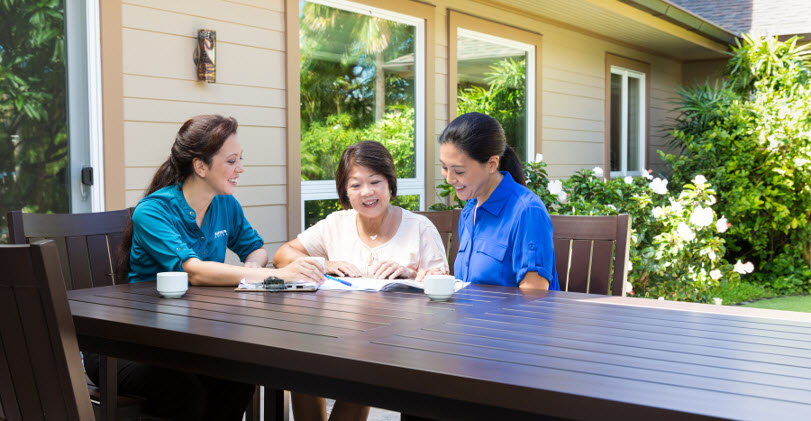There is no perfect time to discuss long-term care options. Most seniors would prefer to age in place at home, as independently as possible. But too few take the time to discuss their preferences with their family, leaving family caregivers stressed and scrambling.
The most important thing any family can do to prepare for a loved one to live at home for as long as possible is to talk about it today.
Here are three tips to keep in mind as you discuss and plan how to spend those precious golden years.
Tip #1: Don’t wait for a perfect moment
Bring up the topic casually at family dinners and get-togethers. Make sure that everyone in the family hears your or your aging loved one’s wishes and is prepared to honor them.
Tip #2: Be alert for behavior and lifestyle changes
If you notice changes—withdrawing from activities, becoming forgetful, difficulty with daily routines, or increased health issues—have a conversation with a medical professional about what kind of caregiving support might be needed.
Tip #3: Have the conversation by age 60, at the latest!
This is a natural age when retirement, wills, healthcare, end-of-life, and financial planning conversations are happening. Include aging-in-place planning in that mix.
At Home Care by ALTRES Medical, we’re working together with family caregivers to help our kupuna live long, independent, and comfortable lives. Contact us to learn more.


There is no perfect time to discuss long-term care options. Most seniors would prefer to age in place at home, as independently as possible. But too few take the time to discuss their preferences with their family, leaving family caregivers stressed and scrambling.
The most important thing any family can do to prepare for a loved one to live at home for as long as possible is to talk about it today.
Here are three tips to keep in mind as you discuss and plan how to spend those precious golden years.
Tip #1: Don’t wait for a perfect moment
Bring up the topic casually at family dinners and get-togethers. Make sure that everyone in the family hears your or your aging loved one’s wishes and is prepared to honor them.
Tip #2: Be alert for behavior and lifestyle changes
If you notice changes—withdrawing from activities, becoming forgetful, difficulty with daily routines, or increased health issues—have a conversation with a medical professional about what kind of caregiving support might be needed.
Tip #3: Have the conversation by age 60, at the latest!
This is a natural age when retirement, wills, healthcare, end-of-life, and financial planning conversations are happening. Include aging-in-place planning in that mix.
At Home Care by ALTRES Medical, we’re working together with family caregivers to help our kupuna live long, independent, and comfortable lives. Contact us to learn more.